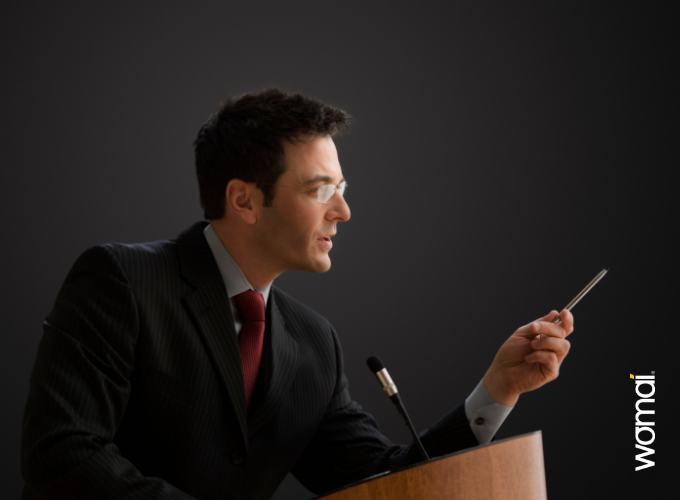Edukacja nie kończy się w szkole i jest wiele możliwości, aby dziecko załapało bakcyla wiedzy.
W cyklu „Oblicza edukacji” pokazujemy matematykę, biologię, chemię, plastykę, technikę w nieco innej perspektywie niż dzieje się to w szkole. Przedstawiamy osoby, które z pasją podchodzą do zajęć z dziećmi i pokazują, jak nauka może być ciekawa, a nawet fascynująca!
Z otwartą buzią i zachwytem w oczach słuchaliśmy jak Damian Stachura (nomen omen specjalista ds. naukowych i technicznych w WOMAI) opowiada o rozszczepianiu świateł, o swoich „idolach”, którzy wielkimi zgłoskami zapisali się w „technicznych” dziejach świata, o iluzji optycznej… Posłuchajcie i Wy, co ma do powiedzenia na temat edukacji 🙂 i fizyki, która jest wszędzie – na wyciągnięcie ręki!
Kids in Kraków: Czy w szkole lubił Pan fizykę? Jaki był Pana ulubiony przedmiot w szkole?
Damian Stachura: Patrząc na moje wykształcenie, może wyda się to zaskakujące, ale szczerze powiedziawszy fizyka nie była przedmiotem, który lubiłem w szkole. Oczywiście na różnym etapie edukacji moja pasja do fizyki ewoluowała, ale niestety nie za sprawą szkoły samej w sobie, a bardziej mojego brata, biofizyka z wykształcenia. Dzięki niemu miałem też łatwy dostęp do książek, które przedstawiały fizykę nie jako zbiór regułek, nie jako coś, czego trzeba się nauczyć, żeby zdać, a jako wszystko to, co nas otacza. Co do innych przedmiotów to bardzo lubiłem wf oraz matematykę, dochodziła do tego – w zależności od nauczyciela, który prowadził dane zajęcia – historia czy geografia.
Kids in Kraków: Jak uczyć fizyki, by nie sprowadziła się ona do wzorów, nauki zasad na pamięć i wkuwania terminologii?
Damian Stachura: Przede wszystkim należy zmienić myślenie na temat fizyki. Pytanie nie brzmi, jak uczyć fizyki, ponieważ fizyki nie można nauczyć. Pytanie brzmi, jak fizykę pokazać, tak by każda lekcja była odkryciem rąbka tajemnicy. Aby lekcja nie była jedynie nudną paplaniną, to należy ją pokazywać, opowiadać o rzeczach wokół nas, wszystko potwierdzając eksperymentami, tak by uczeń po przyjściu do domu miał ochotę opowiedzieć o tym, co widział, mógł pochwalić się, że wie, czemu coś działa. Musi widzieć sens w tym, czego się uczy, musi to być dla niego przydatne. Dlatego też uważam, że przeprowadzenie lekcji fizyki jest bardzo proste, ponieważ można ja pokazać, tak by uczeń doświadczył jej całym sobą.
Kids in Kraków: Co według Pana w kształceniu dzieci jest najważniejsze? Jak o trudnej tematyce mówić w sposób ciekawy, a nawet zabawny?
Damian Stachura: Osobiście myślę, że najważniejsze jest luźne podejście. Będąc nauczycielem powinno się wyrzucić z pamięci swoje tytuły naukowe, różnicę wieku i rozmawiać z uczniem trochę jak równy z równym. Pomaga to w prowadzeniu lekcji nie jak wykładu, ale jak opowieści, która może prowadzić do bardzo ciekawej dyskusji. Również pomaga odpowiednie nastawienie nauczyciela. Myślę, że takim drogowskazem mogą być słowa Alberta Einsteina, że nauczyciel nie powinien tracić czasu na zadawanie pytań, które mają pokazać, czego uczeń nie umiem, ale zadawać pytania, mające na celu ujawnienie, co uczeń umie i czego jeszcze może się nauczyć.
Kids in Kraków: Czy to prawda, że w WOMAI na wystawie „W stronę światła” jest fizyka na wyciągnięcie ręki?
Damian Stachura: Ja bym powiedział, że fizyka jest na wyciągnięcie ręki wszędzie wokół nas, gdzie tylko się znajdujemy. Natomiast to co my, przewodnicy, robimy na wystawie „W stronę światła” to pomagamy ją zauważać. Myślę, że jest to najważniejsza sentencja, którą chcemy przekazać naszym gościom, tak by po wyjściu ich perspektywa troszeczkę się zmieniła. Oczywiście, wszystko to jest ubrane w dobrą zabawę i ciekawą formę, tak by każdy wyszedł stąd szczęśliwy.
WOMAI to….
centrum edukacji i wrażeń. Miejsce pełne pasji, w którym każdy z nas może oderwać się od codziennych problemów i przez moment wejść w świat magiczny oraz nietuzinkowy, chociaż od zawsze towarzyszący nam na co dzień. Na wystawie „W stronę ciemności” jest to świat osób niewidomych, natomiast na wystawie „W stronę ciemności”, o której już zdążyliśmy trochę napomknąć, jest to świat fizyki, wypełniony nauką i ciekawostkami. Zresztą serdecznie wszystkich zapraszam do wejścia w naszą krainę i skonfrontowania swoich przekonań.
Author – Barbara Fijał | Kidsinkrakow
